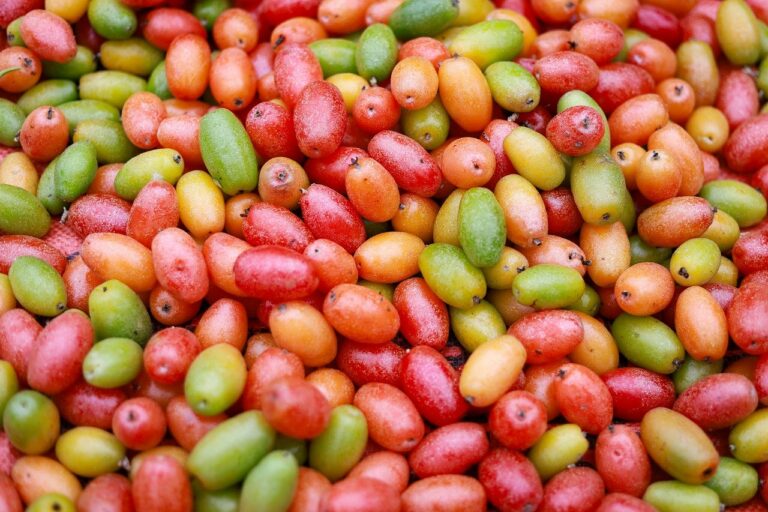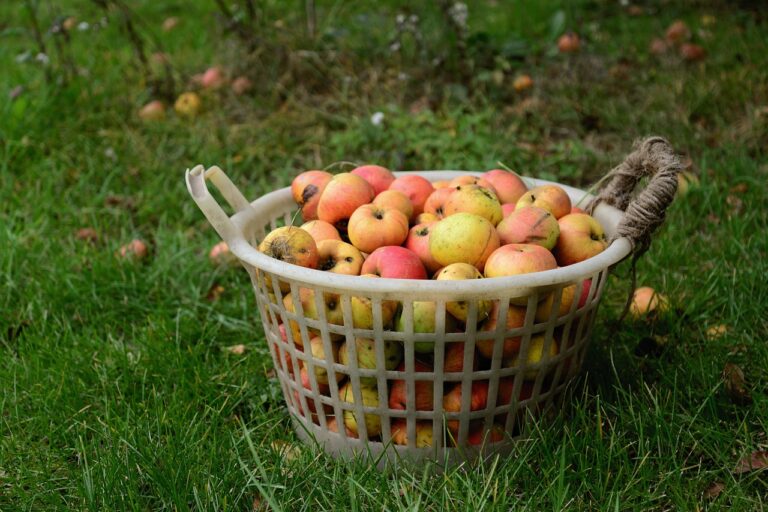Food Industry’s Contribution to Sustainable Development Goals: Case Studies and Partnerships
Sustainable agriculture plays a crucial role in achieving development goals, offering a pathway towards a more inclusive and resilient future. By promoting environmentally-friendly farming practices that prioritize the long-term health of the land, communities can ensure sustainable food production and economic growth. This approach not only safeguards natural resources but also contributes to the overall well-being of society by enhancing food security and supporting local livelihoods.
Moreover, sustainable agriculture fosters innovation and adaptation in the face of changing environmental conditions and market dynamics. By embracing techniques that optimize resource efficiency and minimize waste, farmers can improve their productivity while mitigating the negative impacts of agriculture on the environment. In this way, sustainable agriculture serves as a cornerstone for sustainable development, offering a holistic approach that addresses the interconnected challenges of food security, poverty reduction, and environmental sustainability.
Enhancing Food Security Through Innovative Farming Practices
Innovative farming practices play a crucial role in enhancing food security by increasing agricultural productivity and resilience to climate change. Utilizing technology such as precision agriculture, farmers are able to optimize resources like water and fertilizers, resulting in higher yields and reduced environmental impact. Additionally, the adoption of sustainable farming methods, such as organic farming and agroforestry, not only improves soil health but also provides a diverse range of nutritious food options for communities.
Furthermore, promoting agroecology practices, such as crop rotation and intercropping, can help mitigate the effects of pests and diseases without relying on chemical pesticides. By integrating agroecological principles into farming systems, farmers can enhance biodiversity, improve soil fertility, and reduce the dependency on external inputs. These holistic approaches not only contribute to food security but also contribute to the overall sustainability of the agricultural sector.
Precision agriculture helps optimize resources like water and fertilizers
Sustainable farming methods such as organic farming and agroforestry improve soil health
Agroecology practices like crop rotation and intercropping help mitigate pests without chemical pesticides
Integrating agroecological principles enhances biodiversity, improves soil fertility, and reduces dependency on external inputs
Reducing Food Waste and Losses in the Supply Chain
When considering food waste and losses in the supply chain, it’s crucial to recognize the multifaceted nature of the issue. One key aspect is the lack of proper infrastructure and technology to effectively manage and preserve food throughout the production and distribution process. This often leads to significant losses before the food even reaches consumers.
Additionally, consumer behavior plays a significant role in contributing to food waste. Uneven distribution of food resources, coupled with consumer preferences for visually appealing produce, results in substantial amounts of edible food being discarded at the retail level. Addressing these challenges requires a holistic approach that involves improved coordination among stakeholders, investment in technology and infrastructure, as well as concerted efforts to educate consumers on the importance of minimizing food waste.
What is the role of sustainable agriculture in reducing food waste and losses?
Sustainable agriculture focuses on practices that minimize environmental impact and promote long-term profitability. By implementing sustainable farming methods, such as crop rotation, integrated pest management, and conservation tillage, farmers can improve crop yields and reduce post-harvest losses.
How can innovative farming practices enhance food security?
Innovative farming practices, such as precision agriculture, vertical farming, and hydroponics, can increase efficiency and productivity in food production. By adopting these technologies, farmers can produce more food with fewer resources, ultimately improving food security for communities around the world.
What steps can be taken to reduce food waste and losses in the supply chain?
To reduce food waste and losses in the supply chain, stakeholders can implement better storage facilities, transportation systems, and packaging techniques. Additionally, improving coordination and communication among all players in the supply chain can help minimize losses and ensure that food reaches its intended destination in a timely manner.







